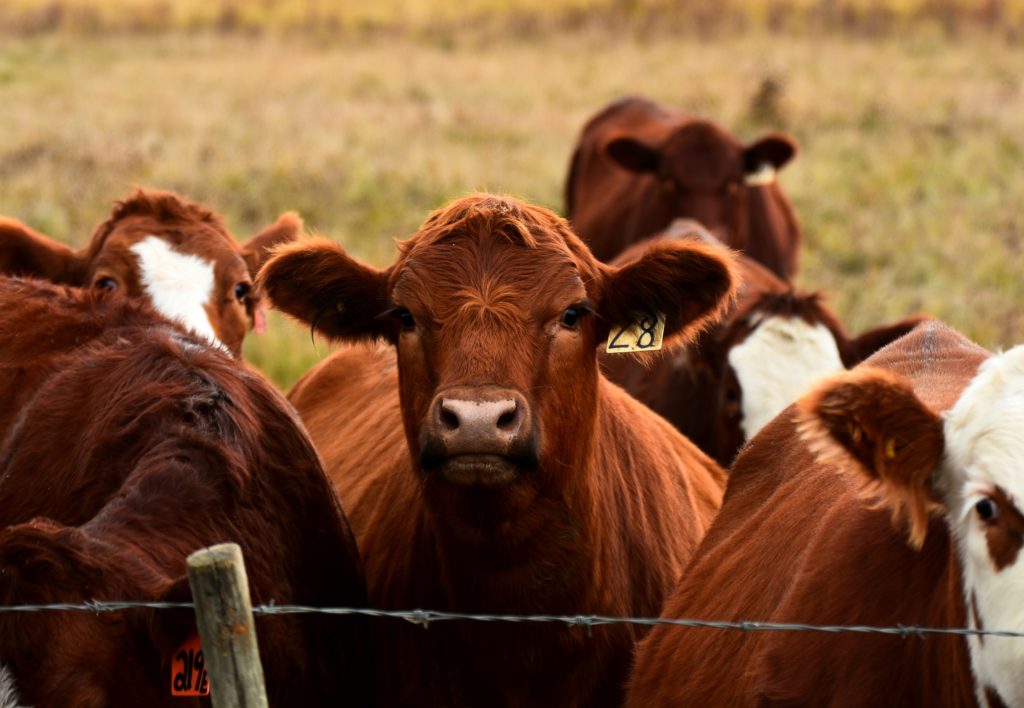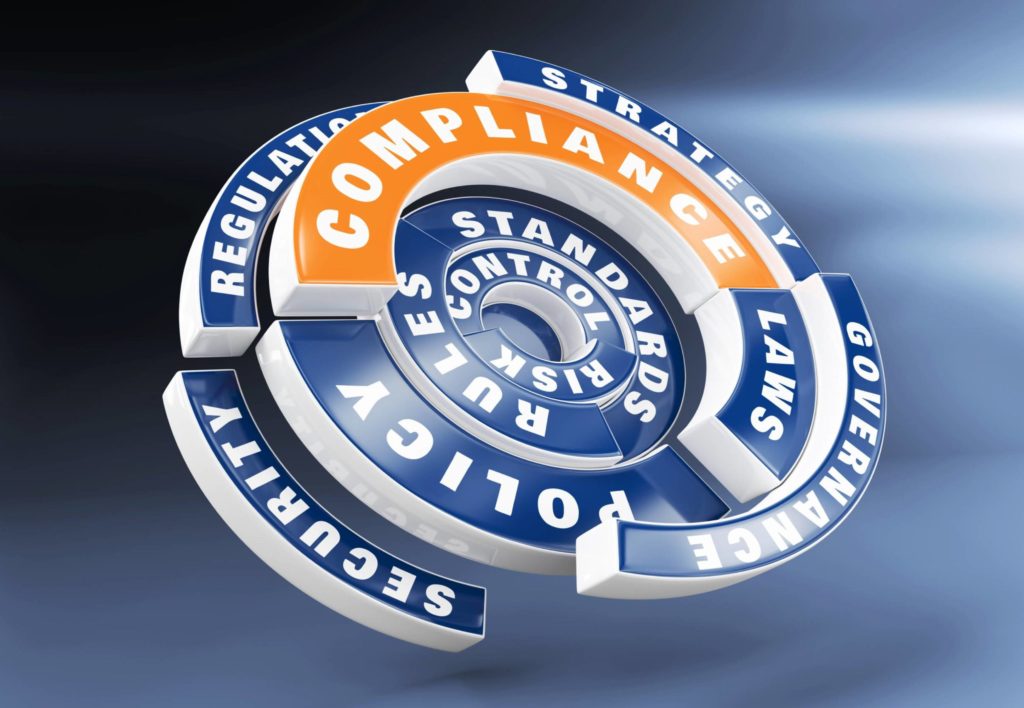USDA Regulated Products
Importing USDA Regulated Products
Importing USDA-Regulated Food Products into the US
If you are planning to import USDA-regulated products into the United States, there are several important steps that you need to follow to ensure compliance with US regulations.
Step 1: Determine the USDA Regulatory Status of Your Product
The first step in importing USDA-regulated products into the US is to determine whether your product is regulated by the USDA. The USDA regulates a wide range of products, including meat, poultry, eggs, dairy products, fruits, vegetables, and grains.
To determine the regulatory status of your product, you can visit the USDA's Animal and Plant Health Inspection Service (APHIS) website, which provides information on which products are regulated and what requirements must be met to import them.
Step 2: Obtain an Import Permit
Once you have determined the regulatory status of your product, you may need to obtain an import permit from the USDA. The requirements for obtaining an import permit vary depending on the type of product you are importing and the country of origin.
To obtain an import permit, you will need to complete an application form and provide information about the product you are importing, including its intended use, the quantity, and the country of origin.
Step 3: Ensure Compliance with USDA Requirements
Before you can import your product into the US, you will need to ensure that it meets all USDA requirements. These requirements may include:
- Inspection and testing: Depending on the type of product you are importing, it may need to be inspected and tested by USDA officials to ensure that it meets US standards for safety and quality.
- Documentation: You will need to provide documentation showing that your product meets all USDA requirements, including certificates of inspection and analysis.
- Labeling: Your product must be labeled in accordance with USDA regulations, including the use of appropriate product names, net weight, and country of origin labeling.
Step 4: Submit Your Product for Inspection at the Port of Entry
Once your product has been imported into the US, it will need to be inspected by USDA officials at the port of entry. The inspection process may include sampling and testing to ensure that your product meets US standards for safety and quality.
If your product is found to be in compliance with USDA requirements, it will be allowed to enter the US. If not, it may be rejected or subject to further inspection and testing.
Importing USDA-regulated products into the US can be a complex process, but by following these steps and ensuring compliance with USDA requirements, you can ensure that your product is imported legally and safely.
The USDA food safety program ensures that the nation's commercial supply of meat, poultry, and egg products is safe, wholesome, and properly labeled, and packaged. USDA regulates the importation of animals and animal products, plants and plants product, veterinary biologics, genetically engineered organisms and more to ensure that exotic plant and animal of potential risk, and diseases are not introduced to the United States.
USDA permit requirements differ depending on the origin of the plant or animal, the finished commodities containing the plant- and/or animal-derived materials, and their potential risk to the health and environment. If you plan to import a USDA-regulated product into the United States, you will need to determine if a USDA permit will be required.
For more information on importing USDA-regulated products, visit the USDA's APHIS website or consult with a qualified import/export professional.
USDA Food Safety and Inspection Service (FSIS)
The U.S. Department of Agriculture’s (USDA) Food Safety and Inspection Service (FSIS) is the public health regulatory agency responsible for ensuring that domestic and imported meat, poultry, and egg products are safe, wholesome, and pure for human consumption (except wild ruminant and wild fowl), and correctly labeled and packaged. FSIS inspects imported meat, poultry, and egg products under the authority of the Federal Meat Inspection Act (FMIA), the Poultry Products Inspection Act (PPIA), and the Egg Products Inspection Act (EPIA).
Federal inspection regulations permit the entry of small amounts of meat, poultry or egg products for personal consumption. The amount of a personal consumption shipment cannot exceed 50 pounds for meat, poultry, or dried egg products and 30 pounds for liquid or frozen egg products. The products must be for personal use only and cannot be sold or distributed in U.S. commerce. Such products are exempt from FSIS import regulation, but they are subject to Animal and Plant Health Inspection Service (APHIS) animal health requirements. These requirements change frequently, and travelers should contact APHIS for up-to-date information by visiting the APHIS website.
In-Depth Coverage: USDA-Regulated Products
- Importing USDA-Regulated Food Products
- Import Regulation by USDA Agricultural Marketing Service (AMS)
- Food Products – FDA or USDA Regulated
- Country of Origin Labeling
- Importing Animals, Animal Products, and Biologics into the US
- Importing Meat, Poultry, and Egg Products into the US
- Labeling and Marking of Imported Meat, Poultry, and Egg Products
- USDA National Organic Program (NOP)
- Agricultural Safeguards and USDA Licensing
USDA Animal and Plant Health Inspection Service (APHIS)
USDA’s Animal and Plant Health Inspection Service (APHIS) issues permits for the import, transit and release of regulated animals, animal products, veterinary biologics, plants, plant products, pests, organisms, soil, and genetically engineered organisms. APHIS also issues some certifications as a service to United States exporters.
APHIS Plant Protection and Quarantine (PPQ)
APHIS’ Plant Protection and Quarantine (PPQ) regulate the importation of plants and plant products under the authority of the Plant Protection Act. PPQ maintains its import program to safeguard U.S. agriculture and natural resources from the risks associated with the entry, establishment, or spread of animal and plant pests and noxious weeds.
APHIS Biotechnology Regulatory Services (BRS)
APHIS regulates the introduction (importation, interstate movement, or environmental release) of certain genetically engineered (GE) organisms. All regulated introductions of GE organisms must be authorized by APHIS under either its permitting or notification procedures. APHIS coordinates these responsibilities along with the other designated federal agencies as part of the Federal Coordinated Framework for the Regulation of Biotechnology.
APHIS Veterinary Services (APHIS–VS)
VS regulations control domestic and foreign commerce of live animals, live poultry, and their products. Since 1971, VS and PPQ and now, CBP have shared the responsibility for implementing, enforcing, and administering animal product and foreign garbage regulations and policies to prevent the introduction of foreign animal diseases.
CBP should refer the following to the responsible VS National Import Export Services (NIES) Service Center.
- Abandoned pet birds or dead birds that were legally or illegally imported (also contact FWS)
- All live animals regulated by VS, live birds, and hatching eggs
- Animal semen, ova, or embryo importations (empty containers are handled by CBP)
- Dogs imported to handle livestock except those from Canada, Mexico, Central America, and the West Indies
In-Depth Coverage: Country of Origin
- Country of Origin of Imported Merchandise
- Customs Ruling: Country of Origin
- Country of Origin: Food Products
- Country of Origin: Chemical and Pharmaceutical Products
- Country of Origin & Country of Manufacture: CBP vs. FDA
- Country of Origin: Substantial Transformation or Country of Assembly Test
- Country of Origin and Free Trade Agreement
- Country of Origin and Section 301
USDA Agricultural Marketing Service (AMS)
Section 8e & Imports
Section 8e of the Agricultural Marketing Agreement Act of 1937 (AMAA) applies to specific fruit, vegetable, and specialty crop imports into the United States. The law requires imported products to meet the same or comparable grade, size, quality and maturity standards as domestic products covered by Federal marketing orders.
Country of Origin Labeling (COOL)
Country of Origin Labeling (COOL) is a labeling law that requires retailers, such as full-line grocery stores, supermarkets and club warehouse stores, to notify their customers with information regarding the source of certain foods. Food products covered by the law include muscle cut and ground meats: lamb, goat, and chicken; wild and farm-raised fish and shellfish; fresh and frozen fruits and vegetables; peanuts, pecans, and macadamia nuts; and ginseng. Agriculture Marketing Service (AMS) of the USDA is responsible for administration and enforcement of COOL.
Cooperation between Federal Agencies
Sometimes the regulations of different Federal agencies govern the same importations. As a result, CBP cooperates with the following Federal agencies and APHIS units on behalf of APHIS at ports of entry (POE) regarding importations of animals, animal products, and animal by-products.
Agricultural Marketing Service (AMS)
Commercial importations of shell eggs may be regulated by the Agricultural Marketing Service (AMS), APHIS, and FDA.
Centers for Disease Control and Prevention (CDC)
Refer the following importations to the local CDC inspector:
- Dogs, cats, bats, and nonhuman primates (apes, gibbons, monkeys, etc.)
- Human tissue, serum, blood, secretions, and excretions
- Lather brushes made from hair and bristles
In-Depth Coverage: Importing Food Products
- What is FDA Food Safety Modernization Act (FSMA)?
- Prior Notice of Imported Foods
- FDA Food Facility Registration
- Risk-Based Preventive Controls for Human Food
- Risk-Based Preventive Control for Animal Food
- Protect Food against Intentional Adulteration
- What is Foreign Supplier Verification Program (FSVP)?
- What is FSMA Produce Safety Rule?
Customs and Border Protection (CBP)
CBP maintains primary control of commercial and noncommercial shipments at the nation’s POEs. The CBP Agriculture Specialists (CBP–AS) at the POEs regulate animal products and by-products on behalf of APHIS offered for importation by identifying and classifying the importation, determining if entry requirements are met, identifying and validating the accompanying documents, and taking final regulatory action according to APHIS regulations.
Fish and Wildlife Service (FWS)
You are required to obtain your Import/Export (I/E) License from Fish and Wildlife Service (FWS) of the U.S. Department of the Interior prior to commercially importing into or exporting from the United States shipments containing wildlife, their parts or products.
An I/E License can be issued to foreign entities (companies or individuals) that have no physical presence in the United States under certain circumstances. This is an uncommon scenario, and these entities will be required to designate a U.S. Agent.
Refer the following importations to an FWS officer:
- All amphibians, fish, and reptiles (to determine if they are protected by the Convention on International Trade in Endangered Species of Wild Flora and Fauna)
- All feral (wild) animals
- All nonfarm animals including birds, but excepting horses, cattle, sheep, goats, swine, dogs, and domestic cats
- Animal by-products such as pelts, coats, skins, game trophies, ivory products, and tortoise shell products; and egg importations if from an endangered or threatened bird
- Dead birds (not owned, i.e., legally or illegally imported)
- Nonhuman primates (apes, gibbons, monkeys, etc.)
In-Depth Coverage: Marketing and Advertising Compliance
- Federal Trade Commission (FTC) Advertising Rules
- Made in USA Standard
- FTC Regulation on Environmental Claims
- Adverting and Marketing on the Internet
- Label Claims for Conventional Foods and Dietary Supplements
- Dietary Supplement Advertising: What is FTC's Truth-in-Advertising Law?
- USDA Country of Origin Labeling (COOL)
- FTC Rules & Regulations on Food Advertisement
Food and Drug Administration (FDA)
The Food and Drug Administration (FDA) is responsible for protecting and promoting public health by evaluating and enforcing safety practices for food products including packaged foods, canned foods, beverages, bottled water, animal feeds and foods, dietary supplements, and some other types of food products. The FDA’s mission also includes evaluating the safety of new ingredients for food and new color additives, ensuring proper labeling of food and dietary supplements, and fostering safe manufacturing practice.
Refer the following importations to an FDA inspector:
- Any drug, medication, or food intended for animals or humans that FDA has indicated an interest in; consult with the local FDA inspector for specific items of interest
- Commercial importations of food products
- Wild fowl meat
- Wild ruminant meat
Guidance on customs & logistics solution for traditional and e-commerce importers and exporters
Customs Clearance
All goods imported into the U.S. are required to be declared to CBP. Our customs broker will help you stay in compliance with customs laws and regulations and clear your goods quickly and efficiently with our electronic Automated Commercial Environment (ACE) and Automated Broker Interface (ABI) Single Window System.
Freight Forwarding
Looking for a freight forwarding partner? To move your cargo from its current location through customs to its final destination we will partner with you to find the best way for your business. Whatever your transportation, logistics or customs clearance needs, we will do our best to customize a solution for your needs.
Warehousing & Distribution
Our warehouse facility offers great potential for serving as a regional hub with over 145,000 SF storage capacity close to Los Angeles Airport & Los Angeles/Long Beach Sea port. With our extensive experience in freight services, your import/export cargo will be handled quickly and effectively.
Section 321 Entry
Section 321 entry allows importing free of duty and tax for shipments imported by one person on one day having a fair retail value in the country of shipment not more than $800. We provide our resident and non-resident clients with dedicated ACE eManifest solutions for Section 321 entry of all modes of transportation.
Non-resident Importer Program
If you want to sell your products in U.S. marketplaces, but you are a business owner located outside of the U.S., and do not have an entity or physical presence in the U.S., you need to be established as a Foreign Importer of Record before your goods can be imported into the U.S. We can help you.
Importer Security Filing (ISF)
An ISF is required when cargo (ocean only) laden on vessel at a foreign port is destined for shipment to the U.S. Under ISF rule, some importing information and details regarding cargo must be transmitted to the CBP at least 24 hours before goods are loaded onto the vessel.
E-Commerce
The Internet has made it easy to find and purchase items from almost anywhere in the world. Our e-commerce experts will help you find the right solution for your international transportation, customs clearance, and delivery to your final destination. We also provide value-added repackaging, warehousing and distribution services.
FDA-Regulated Products and Import Requirements
- What is Food Safety Modernization Act (FSMA)?
- Prior Notice of Imported Foods
- Food Facility Registration
- Risk-Based Preventive Controls for Human Food
- Risk-Based Preventive Control for Animal Food
- Standards for the Growing, Harvesting, Packing, and Holding of Produce for Human Consumption
- What is Foreign Supplier Verification Program (FSVP)?
- Protect Food against Intentional Adulteration
- FDA Regulated Product in Foreign Trade Zone (FTZ)
- Entry Review Process for FDA Regulated Products
- Country of Origin VS Country of Manufacture
- Foods Regulated by FDA or USDA: What is the Difference?
- Label and Labeling Claims for Conventional Food and Dietary Supplements
- What is USDA Country of Origin Labeling (COOL)?
- Import for Export of FDA Regulated Products
- FDA Regulated Products in Personal Baggage or Sending by Mail or Courier
- International Mail Facility (IMF) and FDA Regulation
- Importing Biological Product Regulated by CBER
- Importing Cosmetics and Voluntary Cosmetic Registration Program (VCRP)
- Importing Drugs into the U.S.
- Importing OTC Drugs into the U.S.
- Importing Veterinary Drugs into the U.S.
- Importing Tobacco Products into the U.S.
- Importing Medical Devices into the U.S
- Importing Food Products into he U.S.
- Importing Radiation-Emitting Products into the U.S.
Design your own logistics
To move your cargo from its current location through customs to its final destination we will partner with you to find the best way for your business.
Customs Clearance and Import Requirements
- Entry of Imported Merchandise
- What is Section 321 Entry?
- What is Automated Commercial Environment (ACE)
- What is an Automated Broker Interface (ABI)?
- Who is Ultimate Consignee?
- What is Non-Resident Importer Program?
- Country of Origin of Imported Merchandise
- What is the Country of Assembly?
- What is the FDA's Country of Manufacture?
- Marking of Country of Origin on U.S. Imports
- What is Customs Bond?
- Reconciliation Prototype and Bond Rider
- Who Needs a Customs Broker?
- What is Customs Ruling Program?
- Classification of Imported Goods
- How is imported merchandise appraised?
- What are Import Quotas?
- What are Trade Remedy Duties?
- Antidumping Duty (AD) and Countervailing Duty (CVD)
- What is Foreign Trade Zone (FTZ)?
- What is Importer Security Filing (ISF)?
- What is Temporary Importation under Bond (TIB)
- What is In-Bond Process?























